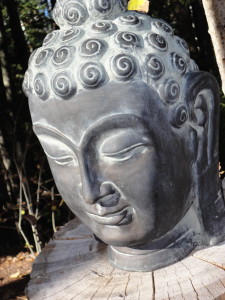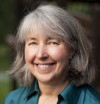“Books let us into [men’s] souls and lay open to us the secrets of our own. They are the first and last, the most home-felt, the most heart-felt of our enjoyments.”
-William Hazlitt (1778-1830)
This quote from English philosopher and essayist William Hazlitt was written near the end of his life when he was bedridden with a painful illness. In his essay “The Sick Chamber,” where he chronicled his own illness and decline, he wrote, “This is the time for reading,” describing the enrichment he received from the books he was able to read during this pivotal time in his life.
As I look back at my own life it is apparent to me that books and my love of reading have played a profound role in my growth as a person and as a spiritual being. Each time life has presented me with a new challenge or an impetus for spiritual growth, I have found a book (or several) to be my perfect companion on the journey, offering me wisdom and enlightenment along the way.
Now at this moment in history, as we are facing numerous difficulties across the planet, seems to be the perfect “time for reading.” So I’ve compiled a list of five of the books that have especially shaped my own course of development and brought me through some of my own difficult times. If you are looking for life-changing reading material, you may want to start here:
Healing the Shame that Binds You by John Bradshaw
I initially started reading this book because I thought it would be helpful to recommend to my patients, many of whom were dealing with childhood traumas. I had not recognized my own childhood wounds or the depth of shame I was carrying until I immersed myself in its pages and began exploring old memories. From that moment on my healing began.
Minding the Body, Mending the Mind by Joan Borysenko
This book introduced me to the concept of mind-body medicine and gave me a new vocabulary of terms like “relaxation response.” I understood for the first time how the mind influences physical health, which changed the way I practiced medicine. As a result of this new knowledge I started using yoga and meditation in my own life, which produced powerful changes for me over time by reducing my anxiety, helping me focus, improving my balance and quieting my thoughts. These practices were important as I struggled to heal my grief over my father’s suicide death.
Anatomy of the Spirit by Caroline Myss
In this groundbreaking book, Caroline Myss depicts the connection between the spirit and the body-mind and the role of spiritual energy in health and illness. Her linking together of the Chakra system, the tree of life and the 7 sacraments was totally awe-inspiring to me and, once again, I changed not only my medical practice but my own spiritual practice, as well. My view of my patients became fully “wholistic” as I began to see the presence of spirit in each and every life and to understand the role that illness and loss play in our transformation as spiritual beings. This had a profound impact on how I viewed my own losses and difficulties in life.
A Theory of Everything by Ken Wilber
Wilber’s Integral Theory and the Beck-Cowan model of Spiral Dynamics provided me with a framework through which to view the evolution of society and of individual consciousness. With these tools available to me I became more attuned to the levels of development of the people in my life, but also gained a new grasp of how systems function and how to make them better. My thinking and problem-solving activities became more creative as I adopted a much deeper and broader perspective of everything.
Prayers of the Cosmos by Neil Douglas-Klotz
This tiny book of “Meditations on the Aramaic Words of Jesus” helped me come full-circle and reconnect with the Christian roots of my childhood by providing me with a mystical view of Jesus and his teachings. I rediscovered the beauty of Jesus’ words that I had once cherished and was finally able to fill the spiritual gap that occurred when I grew away from the church of my youth.
These 5 books, arranged in the order in which I discovered them, provide a chronological biography of my development as a spiritual person. For each and every reader of this article, my wish is that you, too, will have the secrets of your soul laid open to you by delving into the rich and profound depths of a really good book. Open one up today and see where it takes you!
Has your life been profoundly impacted by a book? Leave a comment below and tell us what you have read!
Dr. Karen Wyatt is a hospice and family physician who writes extensively on spirituality and medicine, especially at the end-of-life. She is the author of the award-winning book “What Really Matters: 7 Lessons for Living from the Stories of the Dying.” Connect with her at karenwyattmd.com, on Facebook at fb.com/karenwyattmd and on Twitter @spiritualmd.





